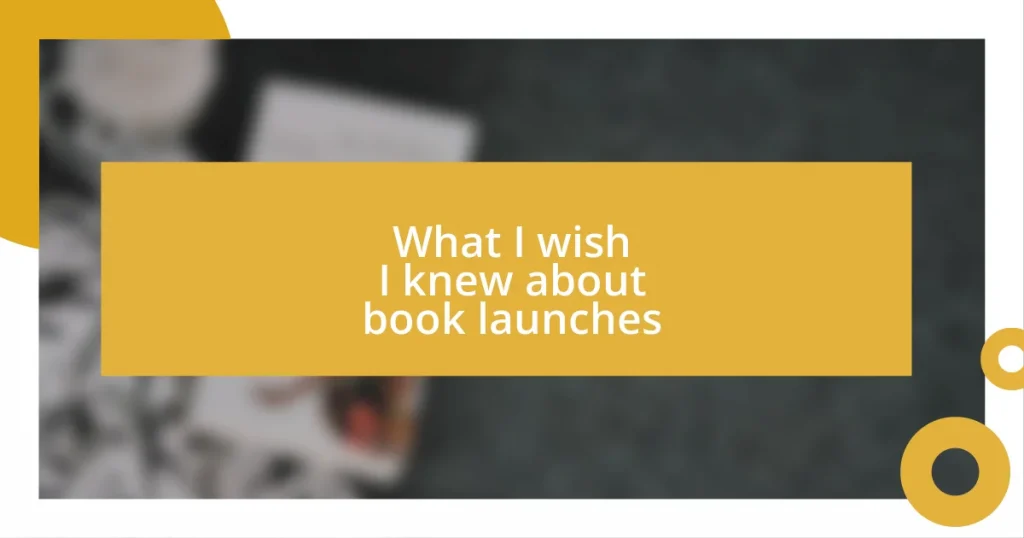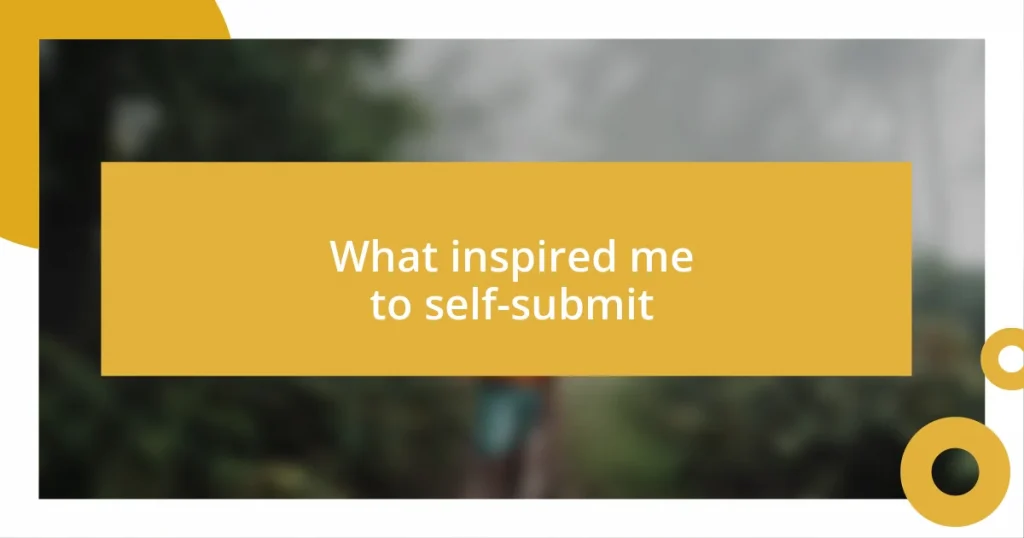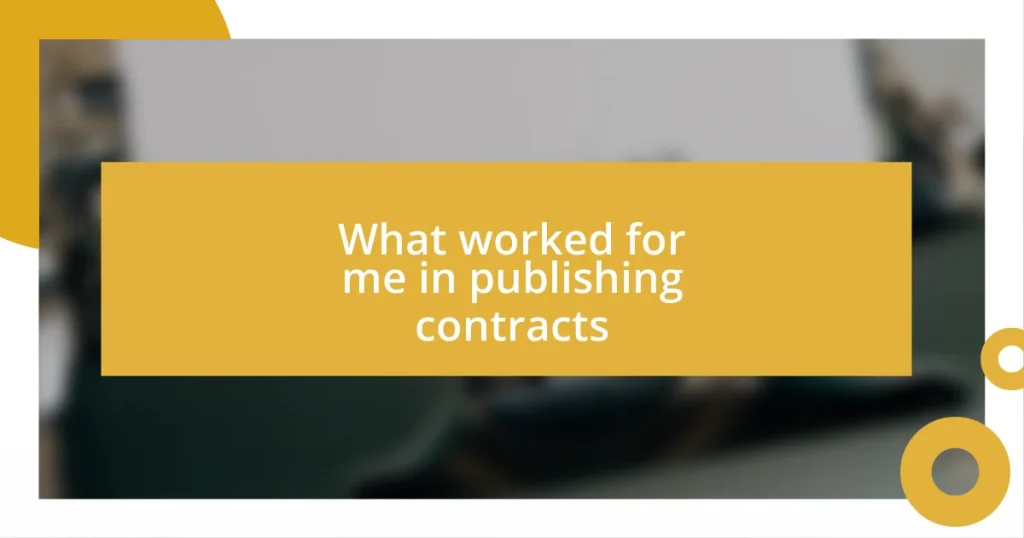Key takeaways:
- Creating a detailed launch timeline with milestones helps manage tasks and reduce stress during the book launch process.
- Building an effective launch team, including cheerleaders and social media advocates, fosters emotional support and enhances promotional efforts.
- Engaging with the audience through pre-launch activities, like virtual events and interactive polls, creates anticipation and builds a community around the book.
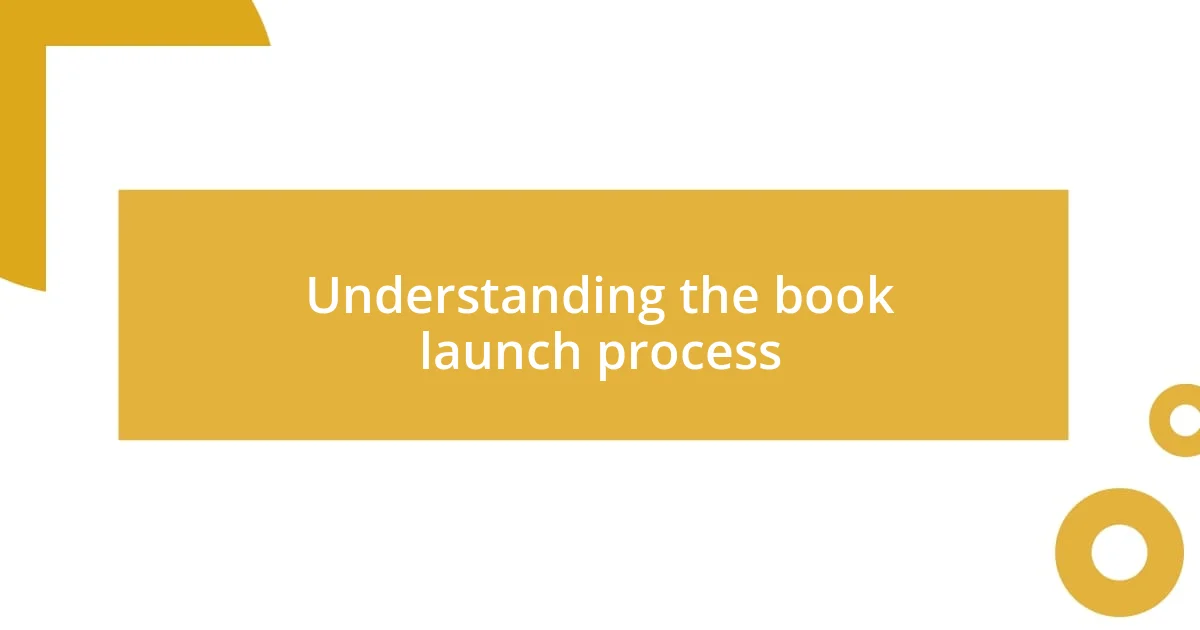
Understanding the book launch process
Understanding the book launch process is more intricate than it might seem at first glance. When I launched my first book, I quickly realized that every detail counts, from setting a launch date to planning promotional activities. Have you ever felt overwhelmed by the sheer number of tasks? I certainly did—it’s a whirlwind of excitement and anxiety.
As I navigated the process, I discovered that having a clear plan helped ease the stress. I created a timeline that outlined key milestones, such as setting up pre-orders and engaging with beta readers. This structure not only made me feel more organized but also fueled my confidence. Have you found that having a roadmap can transform chaos into clarity?
Moreover, the emotional rollercoaster of preparing for a launch is palpable. There were moments of doubt where I questioned if my book would resonate with anyone. Yet, those feelings pushed me to connect with readers on social media, sharing snippets that sparked interest. How has outreach impacted your perception of your work? Engaging with potential readers can be a powerful reminder of why you wrote your book in the first place.
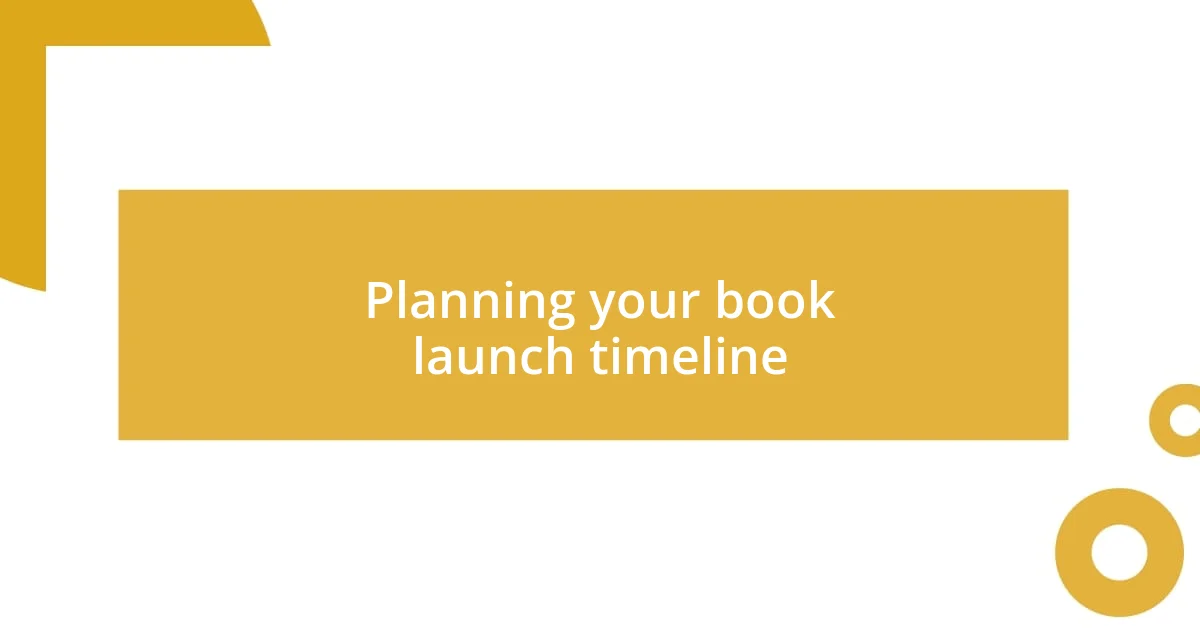
Planning your book launch timeline
Creating a timeline for your book launch is essential to keep everything on track. I remember spending countless hours piecing together my schedule, but it turned out to be one of the best decisions I made. By breaking down the launch into bite-sized tasks—like setting up a launch party or scheduling social media posts—I felt a sense of accomplishment with each completed item. What tasks are essential on your list?
As I mapped out my timeline, I realized that starting early was critical. It wasn’t just about the launch date; it was about the weeks leading up to that momentous occasion. I planned for around three months of pre-launch activities, such as collecting reviews and building my mailing list. This allowed me to generate excitement well in advance—kind of like warming up an engine before hitting the road. Are you prepared to rev up your engine, or are you waiting for the right moment?
Flexibility became my best friend. Despite having a carefully curated calendar, life occasionally derailed my plans. There were days when I had to adjust my promotional strategy based on reader feedback or unexpected events in the publishing world. I learned the importance of staying adaptable, ensuring my launch could still succeed even when the original plan went awry. Have you allowed room for change in your launch strategy?
| Timeline Phase | Tasks |
|---|---|
| Three Months Prior | Build email list, engage with beta readers |
| Two Months Prior | Set up pre-orders, design marketing materials |
| One Month Prior | Schedule social media posts, prepare for ARCs |
| Launch Week | Host launch event, implement marketing strategies |
| Post-Launch | Collect reader feedback, analyze sales data |
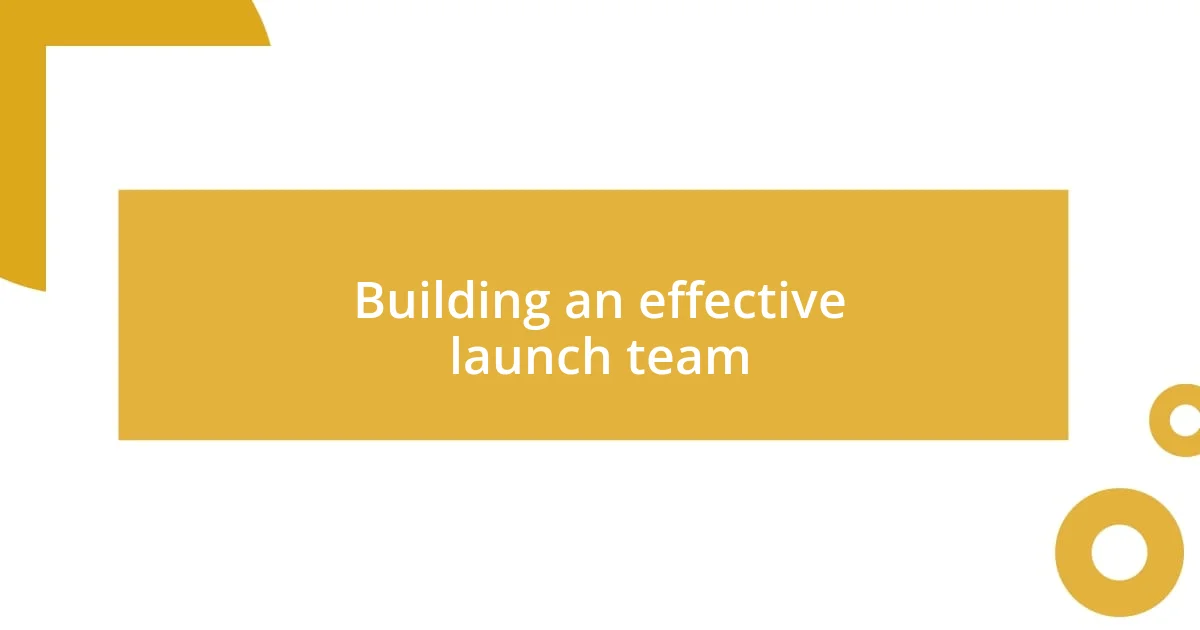
Building an effective launch team
Building an effective launch team is like assembling a dream squad for your book’s big debut. I vividly remember reaching out to my close friends, fellow authors, and enthusiastic readers, asking them if they’d be willing to support me. It was a heartwarming experience—everyone jumped in with excitement and ideas. Their energy ignited my own passion and reassured me that I was not alone in this journey.
Here are some key roles you might consider filling within your launch team:
- Cheerleaders: Friends and family who are genuinely excited about your book and can create buzz through their networks.
- Beta Readers: Individuals who can provide feedback and help you refine your book before launch.
- Social Media Advocates: People who are skilled at promoting on various social platforms, spreading the word about your launch.
- Bloggers and Reviewers: Engaging those who can write reviews can significantly influence potential readers.
- Launch Coordinators: A person (or two!) who can keep everything organized and ensure deadlines are met.
As I prepared for my launch, I realized that these roles were not just functional; they brought unique emotional support to the table. For instance, having a dedicated cheerleader who would text me every time they saw someone mention my book gave me a boost on those days when doubt crept in. The camaraderie among my launch team was invaluable—it transformed what could have felt like a solitary endeavor into a collaborative celebration. How might you inspire your team members to not just support, but also feel part of your book’s journey?
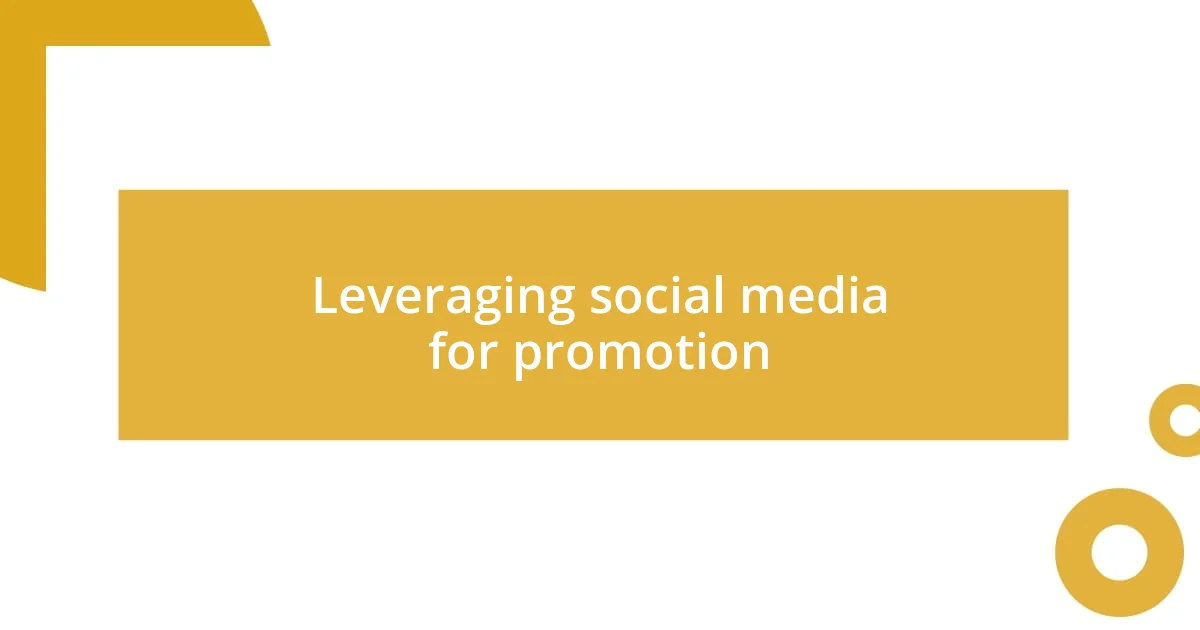
Leveraging social media for promotion
Tapping into social media can feel like a daunting task at first. I remember my initial hesitation—I worried about finding the right platforms and building the right audience. But then I realized that social media is more than just a promotion tool; it’s a space to connect and build genuine relationships with readers. Engaging with my followers through live sessions, polls, and Q&As transformed my approach. Have you considered how genuine interactions could elevate your launch?
Creating a consistent content strategy was a game-changer for me. I started posting snippets of my writing, behind-the-scenes moments, and personal stories connected to my book. Seeing how much people resonated with my journey was exhilarating! It made me understand that readers crave connection; they want to know the person behind the words. What insights could you share about your writing process that might captivate your audience?
I also highly recommend leveraging user-generated content. Encouraging readers to share their thoughts, photos, or videos related to my book significantly boosted my reach. I felt a wave of pride when a reader created a beautiful post about their favorite chapter. It wasn’t just a promotional tactic; it transformed the launch into a collective celebration. Have you thought about how empowering your readers could lead to organic growth for your book’s visibility?
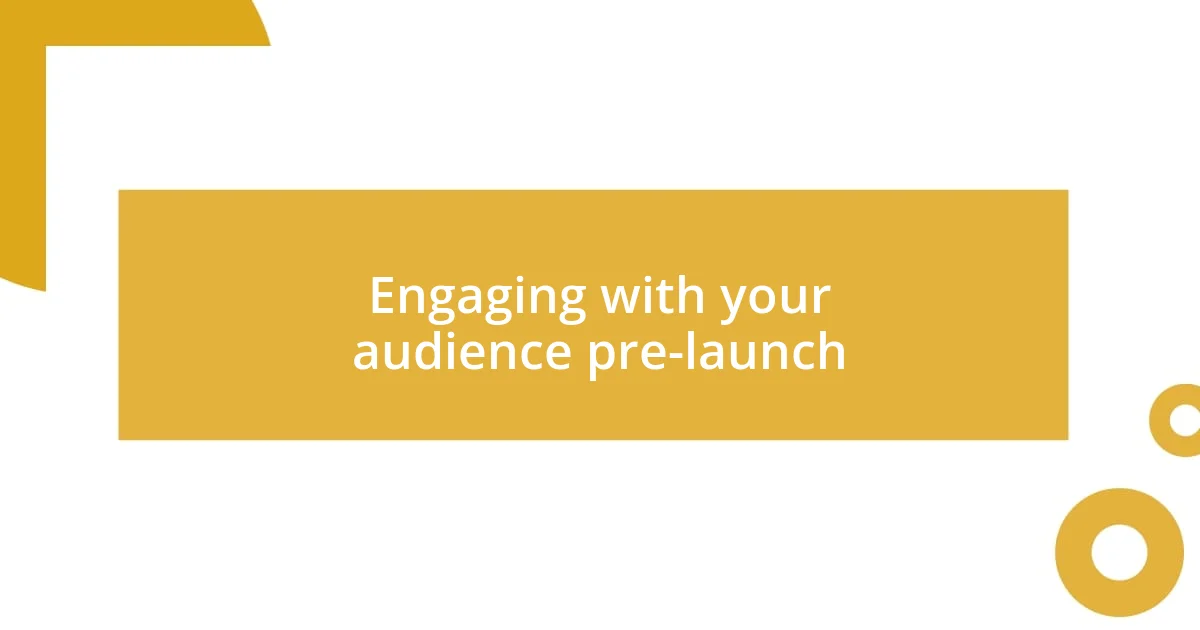
Engaging with your audience pre-launch
Engaging with your audience before the launch is something I found to be truly transformative. In the months leading up to my book debut, I made it a point to connect with potential readers through newsletters and social media updates. This wasn’t just about sharing my writing journey—it was about inviting them to be part of it. I remember hosting a small virtual event where I read excerpts from my manuscript, and the response was electric. It made me feel alive, knowing there were people out there eager to hear my story. Have you thought about how such events could enhance your audience’s anticipation?
I also learned the power of asking questions. During that pre-launch phase, I engaged my audience by seeking their opinions on cover designs and title selections. When I posted a poll on social media, I was taken aback by how invested people became; they genuinely wanted to contribute. This kind of interaction fostered a sense of community, where readers felt their voices mattered. It was exciting to see their enthusiasm manifest as they shared my posts, creating a ripple effect of anticipation. Can you imagine the buzz you could create by involving your audience in the creative process?
Moreover, I started a private book club with a handful of excited readers. This not only built a deeper connection, but it also provided a safe space for feedback. I remember how one reader’s insights helped me refine a plot point that had been troubling me. Their support was uplifting, reminding me that I had allies in this journey. Perhaps fostering similar environments could bring more depth to your relationship with potential readers, making them feel like integral parts of your book’s story before it even hits the shelves.










